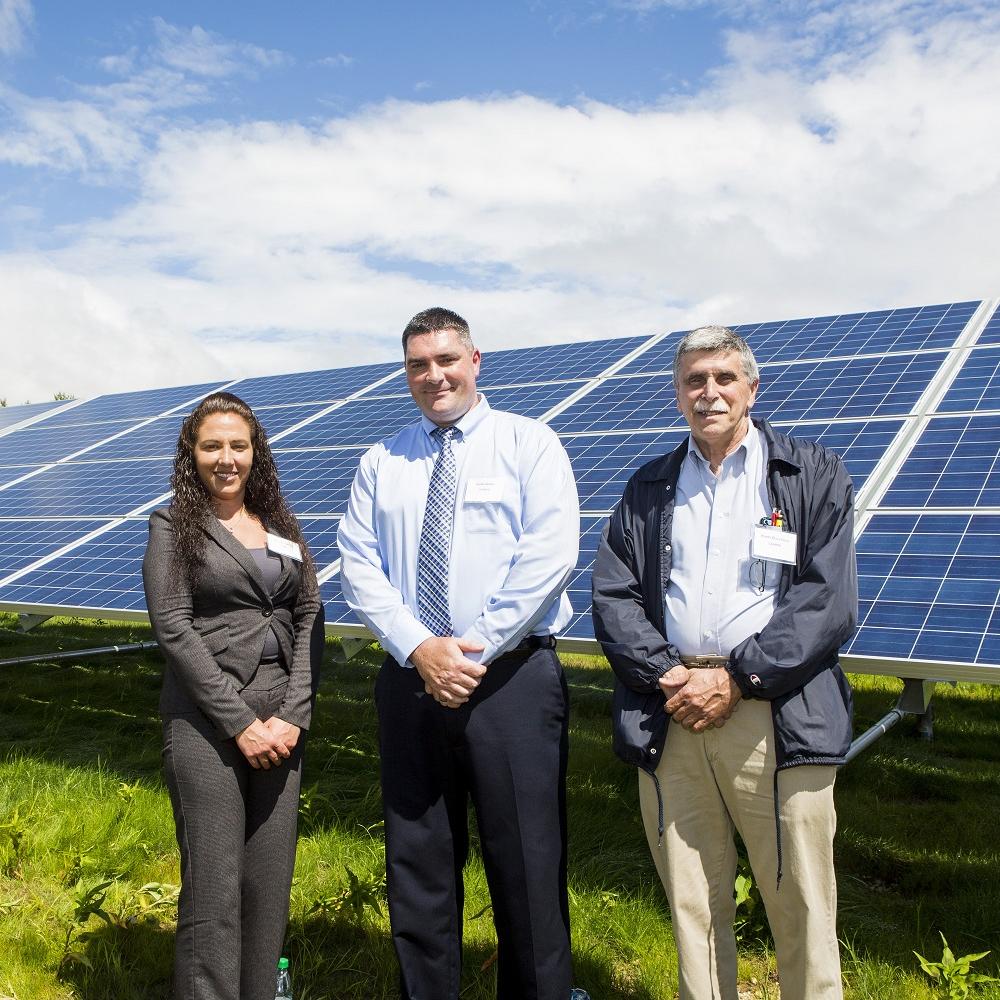Say the words “solar energy” and most people think of roof-top panels. But approximately 80 percent of Massachusetts residents have roofs that are shaded, old or already housing mechanical equipment—or else they are tenants. For these people, rooftop solar won’t work. Fortunately, the state supports “shared solar” plans, through which solar electricity generated in one place can be used in another. Enter the Mill Street Solar Project, developed by BlueHub Capital in partnership with the City of Gardner and the Gardner Redevelopment Authority.
The project transformed a barren brownfield site into a solar field sporting a 3,287-panel, one-megawatt ground-mounted solar array. The City of Gardner benefits from the land lease and tax payments. And four local organizations are saving tens of thousands of dollars on their annual electricity bills.
One beneficiary is GAAMHA, Inc., a crucial provider of services for adults with disabilities. As with many nonprofits, GAAMHA’s budget is tight, and every dollar counts. At one time, their electricity rates were increasing so rapidly the organization feared the costs would overwhelm their ability to deliver services—services the community counts on for individuals in need.
Then CEO Tracy Hutchinson had a fortuitous conversation with Gardner’s mayor, Mark Hawke. “When we found out we would be able to save as much as $10,000 annually, we absolutely wanted to be part of the project,” she says.
Energy produced by the solar array is counted in virtual net metering credits, which translate into direct savings on the utility bills of the participating organizations. Regardless of the price the utility company charges, the organizations purchase those credits at a fixed, below-market rate, guaranteed to remain stable for the next decade.
Utility companies, on the other hand, change rates every 6 months—sometimes with large increases. As a result, GAAMHA saved over 40% on its bills simply by avoiding the rate hikes. It also gives them a stable price to plan around.


